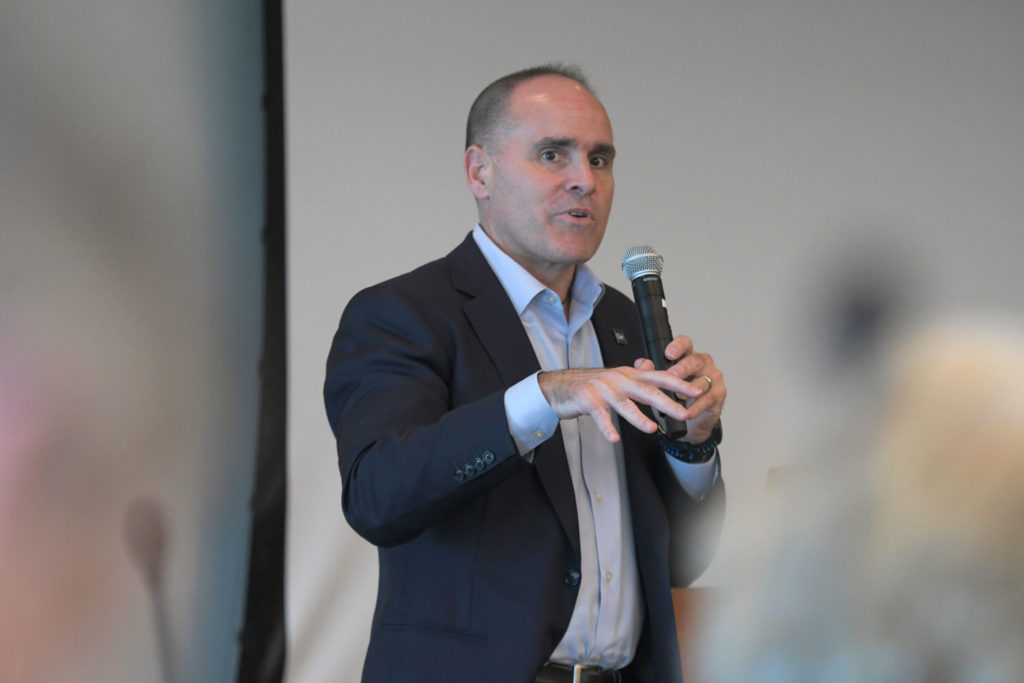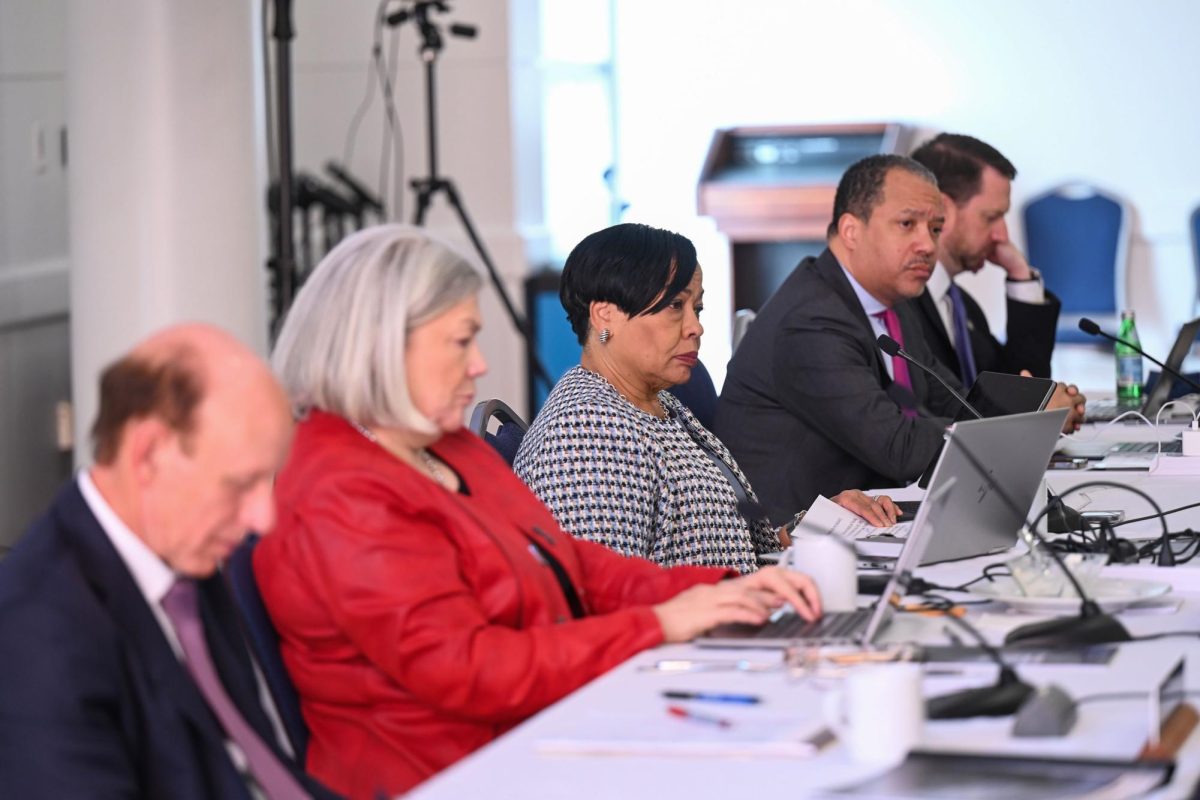Officials are continuing to roll back budget cuts implemented last year to mitigate the COVID-19 pandemic’s financial impacts.
Administrators announced last week that they will resume employee retirement matching contributions and merit salary increases in July and said they are “actively preparing” for a round of faculty hires later this semester, which were all suspended to curb GW’s estimated $180 million budget gap this fiscal year. University President Thomas LeBlanc, Chief Financial Officer Mark Diaz and Provost Brian Blake said they hope to continue “unwinding” additional cuts in the coming months as they continue planning for an in-person fall semester.
“As our financial situation becomes clearer and as we get closer to the start of the budget year – our fiscal year starts on July 1 – the first thing we wanted to do was to reverse the temporary measures that we had to take through the past difficult year,” LeBlanc said in a joint interview with Diaz and Blake.
The cuts were implemented alongside a suspension of most capital projects, a pay cut for top administrators and nearly 400 staff layoffs. The reductions have at times inflamed tensions between faculty and administrators, with many citing the cuts in their calls for LeBlanc’s resignation.
Officials reinstated GW’s base retirement contributions in January, which also included retroactive payments for December.
LeBlanc said the decision to resume matching retirement contributions is a “positive step” toward returning to normal. But he added that officials have been cautious not to overpromise on the timeline for reversing the mitigation measures.
“We don’t want to be on a roller coaster where we have good news and then we say, ‘Oh, we didn’t think of that,’ and then we have bad news, and so on,” he said. “We’re very careful to understand our future revenue and expenditures and to make sure that we could do this in a fiscally sustainable way.”
LeBlanc said he sees light at the end of the tunnel, but GW’s operations and finances will still take more time to return to normal as the pandemic’s impacts persist.
“The coming fiscal year is still a transition year in terms of the budget because frankly, it’s still a transition year in terms of the pandemic,” he said. “We recognize that we’re a different institution than we were before we entered the pandemic. We understand there’s still a lot of uncertainty in the future that we have to consider in our planning, and we don’t expect to suddenly revert to pre-pandemic operations or pre-pandemic budgets.”
Diaz, the chief financial officer, said officials have tried to avoid across-the-board reductions but ultimately could not get around some major cutbacks because of revenue losses. Officials had considered implementing a salary cut last fall but eventually decided against the move after discussions with faculty.
“We have an aversion to blunt instruments, but the circumstances required that we take that, and the one at the top of the list was having to suspend retirement contributions,” Diaz said. “However, once that decision was made, our intent from that point forward was how do we unwind from those.”
He said officials are continuing to navigate a high degree of uncertainty with GW’s finances, even as they hope for students to return to campus this fall because of shifting markets and enrollments.
“We’re in uncharted waters,” Diaz said. “We can’t predict how students are reacting to the new paradigm. We don’t know how the market is shifting because there’s just really no precedent as to how a market functions with all the constraints that are being imposed.”
Diaz said officials plan to submit a budget proposal for the next fiscal year to the Board of Trustees in advance of their May meeting, when trustees typically vote on the budget. The Board delayed the vote last year amid the financial uncertainty at the start of the pandemic, later providing officials with provisional authority as the fiscal year began in July.
Blake, the provost, said administrators are assessing study abroad programs and employee travel this fall as they form next year’s budget.
“It’s unlikely we will have sort of a full steam study abroad program,” Blake said. “We know there are a lot of locations where faculty, staff and students can’t travel.”
He added that officials are making “aggressive” efforts to meet GW’s enrollment goals next year. Officials are seeking to enroll upward of 2,550 freshmen and 300 transfer students this fall.
Blake said he is working with deans and units across the University as officials develop the budget.
“That tension between trying to negotiate where to make the investments and where to earmark – that’s a good tension,” he said. “That’s a really good tension because we need to be in that space to make the best decision. We don’t want to break things. We want to operate in the best way for the students.”








